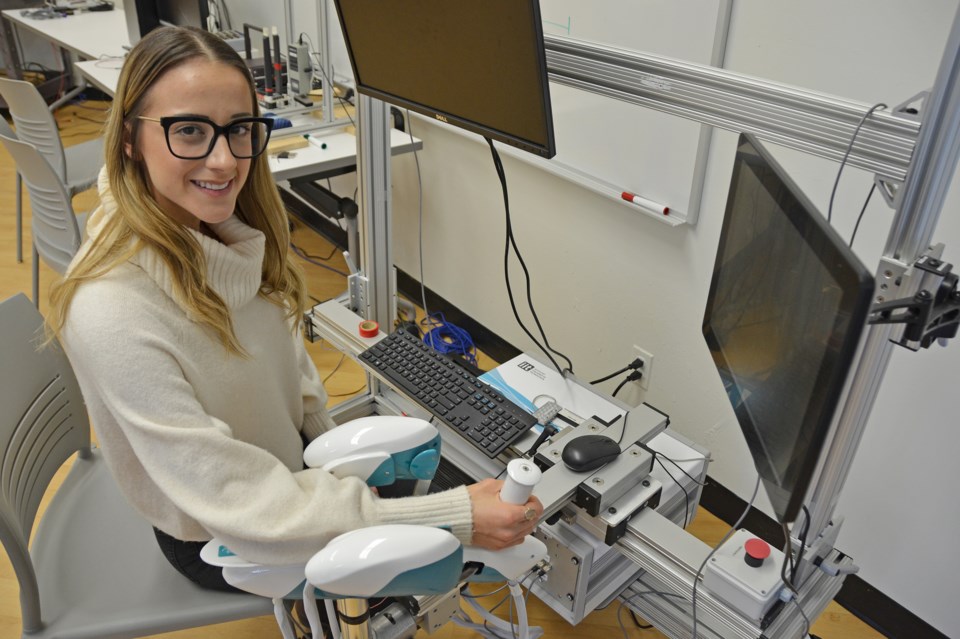A Brock University master’s student is trying to help those suffering from MS to regain control of their hands - through a robotic device.
Kailynn Mannella is working in her lab to develop a ‘wristbot,’ a made-to-order haptic device used to study arm and wrist biomechanics and motor control. Now she is looking for participants living with the disease in a study to see if and how the tool could be used for rehabilitation purposes.
“We’re looking for anyone living with multiple sclerosis with any level of the disease, who is experiencing some sort of disability with their upper arm,” she said in a news release from the university.
Those in remission qualify as well.
Participants in the study undergo three, 35-minute sessions each week for six weeks. During the sessions, participants will be asked to trace an image with their hand using the wristbot. It is similar to a video game, but the robot adapts to the individual’s performance, providing assistance when needed.
“We’re trying to get as many people involved in the study as we can,” says Mannella. “If people are in remission, we’ll still accept them.”
The research team will evaluate biomechanical and functional changes throughout the weeks of training. These include wrist and grip strength, muscle activation and co-ordination.
Mannella’s supervisor is Associate Professor of Kinesiology Michael Holmes, Canada Research Chair in Neuromuscular Mechanics and Ergonomics. He examines how the brain and nervous system generates muscle activity to coordinate complex hand movements.
“To date, our work has focused on understanding hand and upper extremity function in healthy individuals,” he said in a statement. “I always envisioned the wristbot would one day be used in populations with neurological impairments and Kailynn has been the driving force behind this happening. Her passion to improve the lives of people living with MS has led to this very important work.”
Participants of all ages are needed, and travel and parking costs will be reimbursed.
Those wishing to participate in the study should contact Kailynn Mannella at [email protected]



